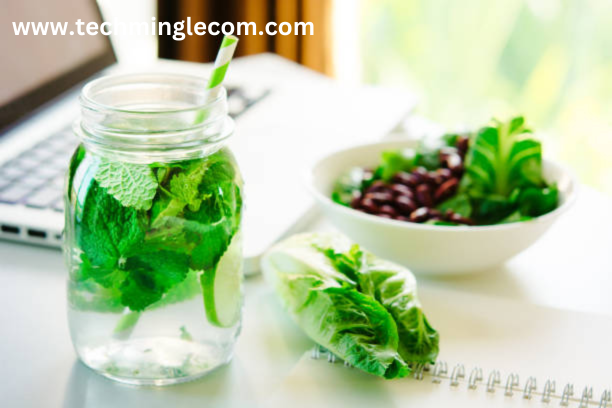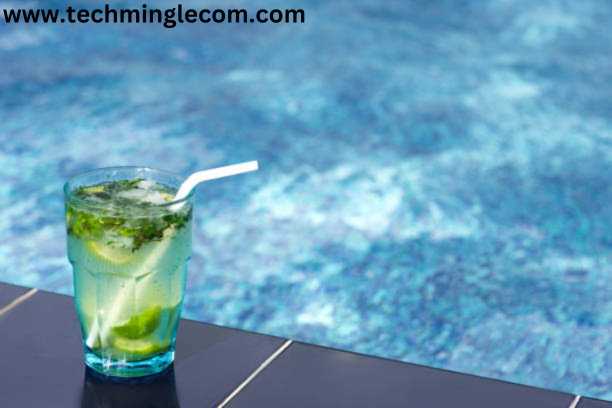
Vitamin Water Nutrition:100% Delicious Ways to Incorporate Vitamin Water
Introduction to Vitamin Water Nutrition
Vitamin Water Nutrition has taken the beverage world by storm. But what exactly is it? Simply put, vitamin water is a flavored drink enriched with vitamins and minerals, designed to hydrate and provide a nutrient boost. Over the past few years, its popularity has soared, becoming a staple in gyms, offices, and homes. People love it for its taste and supposed health benefits, but is it really as good for you as it seems? Let’s dive in and find out!
What’s Inside Vitamin Water Nutrition?
When you pick up a bottle of vitamin water, what are you actually getting? The key ingredients typically include water, natural or artificial flavors, sweeteners, and a mix of vitamins and minerals. Commonly added vitamins include vitamin C, B vitamins (like B3, B5, B6, and B12), and sometimes vitamins A and E. Minerals such as magnesium, potassium, and calcium might also be included, depending on the brand and variety.
Health Benefits of Vitamin Water Nutrition

Hydration and Electrolyte Balance
First and foremost, vitamin water helps with hydration. Water is the primary ingredient, after all. Additionally, the electrolytes in vitamin water, like potassium and magnesium, are crucial for maintaining the body’s fluid balance, especially after a workout or on a hot day.
Vitamin Supplementation
Vitamin water can serve as a convenient way to supplement your diet. For people who struggle to get enough vitamins from food alone, a bottle of vitamin water can provide a quick boost, especially vitamins like C and B-complex, which are essential for energy production and immune function.
Enhanced Physical Performance
Some varieties of vitamin water are specifically formulated to enhance physical performance. They contain ingredients aimed at boosting energy levels, reducing fatigue, and speeding up recovery after exercise.
Different Flavors and Varieties
Vitamin Water Nutrition comes in a plethora of flavors, catering to all taste preferences. Popular flavors include tropical citrus, dragonfruit, and acai-blueberry-pomegranate. For those watching their sugar intake, there are sugar-free and low-calorie options available, often sweetened with alternatives like stevia or erythritol.
Comparing Vitamin Water Nutrition to Other Beverages

Vitamin Water Nutrition vs. Sports Drinks
Sports drinks are designed to replenish electrolytes and provide quick energy during intense exercise. While vitamin water also contains electrolytes, it often has fewer calories and sugars compared to traditional sports drinks, making it a lighter option.
Vitamin Water vs. Energy Drinks
Energy drinks typically contain high levels of caffeine and sugars, along with various vitamins and amino acids. Vitamin water, on the other hand, offers hydration with a moderate vitamin boost without the high caffeine content.
Vitamin Water vs. Plain Water
Plain water is the gold standard for hydration—calorie-free and essential for life. Vitamin water adds flavor and nutrients, which might make it more appealing to some people, but it comes with added sugars or artificial sweeteners in many cases.
Potential Downsides of Vitamin Water
Sugar Content
One of the biggest criticisms of vitamin water is its sugar content. Many varieties contain significant amounts of sugar, which can contribute to weight gain and other health issues if consumed in excess.
Artificial Ingredients
Some vitamin waters contain artificial flavors, colors, and sweeteners, which can be a turn-off for those trying to avoid synthetic additives.
Overconsumption of Vitamins
While vitamins are essential for health, it’s possible to get too much of a good thing. Overconsumption of certain vitamins, particularly fat-soluble ones like A and E, can lead to toxicity and adverse health effects.
Reading the Label: What to Look For
Understanding the nutritional information on a vitamin water label is key to making an informed choice. Look for the amount of added sugars, types of vitamins and their percentages of the daily recommended values, and any artificial ingredients. Labels with certifications like “organic” or “non-GMO” can also guide you towards higher-quality products.
Homemade Vitamin Water: A Healthy Alternative
Making your own vitamin water at home is a fantastic way to control what goes into your drink. Simple recipes often include fresh fruits, herbs, and a pinch of salt for electrolytes. For example, a refreshing mix could be water infused with lemon slices, mint leaves, and a few cucumber pieces. This way, you get natural flavors and nutrients without any added sugars or artificial ingredients.

Vitamin Water and Special Diets
Keto and Low-Carb Diets
If you’re on a keto or low-carb diet, sugar-free vitamin water can be a good choice. It provides hydration and essential electrolytes without the carbs that could knock you out of ketosis.
Vegan and Vegetarian Diets
Vitamin water fits well into vegan and vegetarian diets. Just be sure to check the label for any non-vegan additives, which are rare but possible.
Vitamin Water in Fitness and Sports
Pre-Workout Benefits
DrinkingVitamin Water Nutrition before a workout can help ensure you’re hydrated and provide a quick energy boost from the vitamins and electrolytes.
Post-Workout Recovery
After exercising, vitamin water can help replenish lost electrolytes and fluids, aiding in quicker recovery and reducing the chances of muscle cramps.
Environmental Impact of Bottled Vitamin Water
The convenience of bottled Vitamin Water Nutrition comes with an environmental cost. Plastic waste is a significant issue, with many bottles ending up in landfills or oceans. Opting for brands that use recycled materials or making your own vitamin water can help reduce your environmental footprint.
Consumer Reviews and Feedback
Common Praise
Many consumers praise vitamin water for its taste and convenience. It’s an easy way to stay hydrated and get a nutrient boost, especially for those who dislike plain water.
Common Criticisms
On the flip side, some criticisms include the high sugar content in many varieties and the presence of artificial ingredients. Additionally, some people find the vitamin levels insufficient to justify the cost.
How to Incorporate Vitamin Water into Your Daily Routine
Incorporating vitamin water into your daily routine can be simple. Drink it in the morning to kickstart your day with a vitamin boost, or have it with your lunch as a refreshing beverage. It’s also a great option to keep on hand during workouts or outdoor activities.
Expert Opinions on Vitamin Water
Nutritionists’ Views
Nutritionists often emphasize the importance of reading labels and choosing vitamin waters with low or no added sugars. They also highlight that while vitamin water can supplement a diet, it shouldn’t replace whole foods rich in vitamins and minerals.
Medical Professionals’ Perspectives
Medical professionals advise moderation.Vitamin Water Nutrition can be beneficial, especially for those with specific vitamin deficiencies, but they caution against relying on it too heavily for nutritional needs.
Conclusion
Vitamin water can be a tasty and convenient way to stay hydrated and get a quick nutrient boost. However, it’s important to choose wisely, considering factors like sugar content and artificial ingredients. Homemade vitamin water offers a healthier, eco-friendly alternative, and integrating it into your daily routine can be a refreshing change. Remember, while vitamin water can supplement your diet, it shouldn’t replace the vitamins and minerals found in whole foods.
FAQs
Is Vitamin Water better than soda?
Yes, vitamin water is generally better than soda because it contains added vitamins and minerals. However, it’s important to watch out for sugar content, which can be high in some varieties.
Can Vitamin Water Nutrition help with weight loss?
Vitamin water can aid in weight loss if it helps you stay hydrated and reduces your consumption of high-calorie, sugary beverages. Opt for low-calorie or sugar-free versions for the best results.
How often should I drink Vitamin Water Nutrition?
Moderation is key. Drinking vitamin water a few times a week can be beneficial, but relying on it daily, especially varieties with high sugar content, might not be the best choice.
Are there any side effects of drinking Vitamin Water?
Potential side effects include consuming too much sugar or certain vitamins, which can lead to health issues over time. Always check the label and opt for versions with lower sugar content.
Is homemade Vitamin Water Nutrition as effective as store-bought?
Homemade vitamin water can be just as effective, if not more so, since you control the ingredients and can avoid added sugars and artificial substances. It’s a natural, customizable, and often cheaper alternative.


